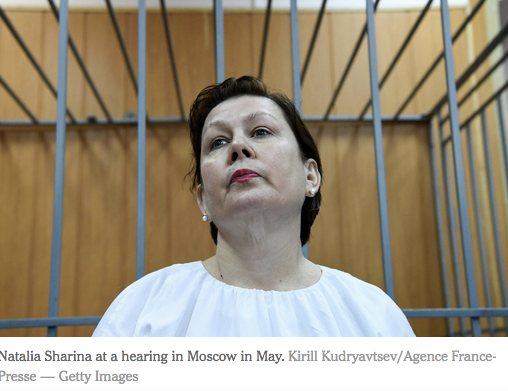No matter that most of the books seized in the raid on the library in 2015 and cited by the prosecution were in special storage and not available to the public, or that, according to the library staff, the book deemed most offensive by the state was planted there by the police. The case was not about inciting “interethnic enmity and hatred,” nor was it about the spurious charges of embezzlement that were leveled against Mrs. Sharina.
It was about denying Ukraine’s claim to a cultural uniqueness, and even more about making clear that the state would brook no challenge to its official lies about Ukraine being in the grips of fascists manipulated by the West to denigrate Russian culture. That version of Russian-Ukrainian affairs was, in fact, how the prosecutor, Lyudmila Balandina, opened her oral arguments, leaving no doubt about the political nature of the trial. It was the librarian’s duty, she argued, to filter new books and to destroy anti-Russian ones.




